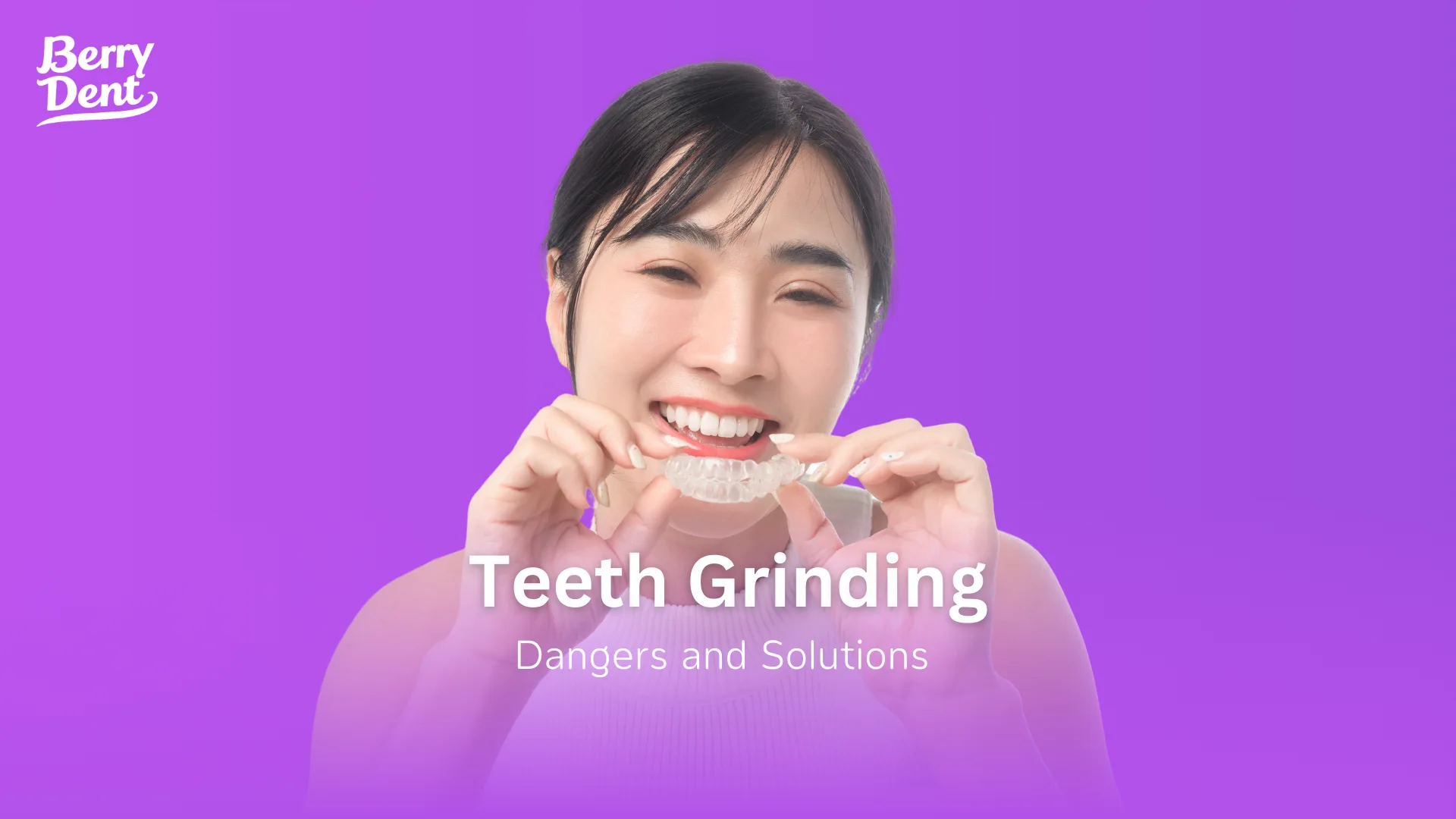Teeth grinding (Bruxism) is a condition many people experience unknowingly. Often dismissed as insignificant, teeth grinding can negatively impact oral and overall health. Berry Dent explores the dangers of bruxism and provides practical solutions.
The Dangers of Teeth Grinding
Teeth grinding involves clenching, grinding, or gnashing teeth unconsciously, often during sleep, but also while awake due to stress, anxiety, or focus. Prolonged teeth grinding can lead to various oral and general health problems:
- Tooth Wear: Continuous grinding wears down enamel, increasing the risk of cracked, chipped, and fractured teeth. Thinning enamel exposes the softer dentin, causing sensitivity and increased vulnerability to cavities.
- Jaw Pain: Teeth grinding overworks jaw muscles, leading to jaw pain, facial soreness, and headaches. Severe cases can result in lockjaw, limiting mouth opening.
- Temporomandibular Joint (TMJ) Issues: Grinding directly affects the TMJ, causing pain, inflammation, and joint deterioration. This can lead to difficulty chewing, unclear speech, and clicking or popping sounds when opening the mouth.
- Sleep Disruption: Grinding noises can disturb others’ sleep. Additionally, tooth, jaw, and head pain caused by grinding affects sleep quality, leading to inadequate rest.
- Other Health Problems: Teeth grinding can be linked to anxiety, stress, depression, sleep disorders, and medication side effects.
Solutions for Teeth Grinding Before Tooth Wear
Teeth grinding during sleep can lead to significant oral health issues, but various management and prevention strategies exist. From lifestyle adjustments to protective devices, consistent oral care, and professional consultation, these methods can help mitigate risks and maintain long-term oral health.
- Stress Reduction: Practicing relaxation techniques such as meditation, listening to music, and exercising can help reduce stress and anxiety, major contributors to teeth grinding.
- Behavior Modification: Avoid habits that worsen grinding, such as chewing gum, biting nails or pens, and consuming caffeine, alcohol, or sugary drinks before bed.
- Applying Heat: Applying heat to the jaw helps relax muscles and relieve soreness.
- Wearing a Night Guard: A night guard is a custom-made dental appliance that protects teeth from wear and reduces pressure on the TMJ during sleep.
- Consulting a Dentist: If you grind your teeth, consult a dentist for diagnosis and a personalized treatment plan. They may recommend a night guard, teeth reshaping, or treatment for underlying oral conditions that contribute to grinding.
Berry Dent combines the benefits of Thai herbs with 1500 ppm fluoride to provide comprehensive oral care. Natural extracts like clove and peppermint help reduce inflammation and freshen breath, while guava leaf promotes oral healing. Suitable for those concerned about enamel erosion from teeth grinding, Berry Dent can be used alongside other treatments as recommended by dentists to support strong oral health


